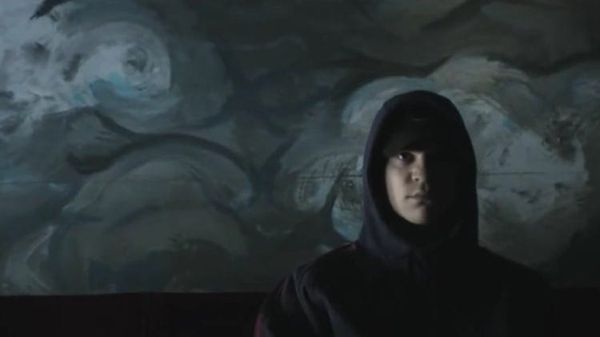Eye For Film >> Movies >> The Imposter (2011) Film Review
The Imposter
Reviewed by: Owen Van Spall

Bart Layton's forthcoming, highly anticipated documentary The Imposter, a hit at Sundance, seems to be one of those films designed to get an audience to spend more time talking about it than actually watching it.
The film, a documentary that is nevertheless shot and structured at times like a narrative noir thriller, takes audiences back to June 13th 1994, San Antonio, Texas. It was there that blond, blue-eyed Nicholas Barclay, 13, vanished without a trace close to his suburban home. Three-and-a-half years later, his family received staggering news from the FBI and Spanish authorities - a boy claiming to be Nicholas had had been found, thousands of miles from home in Spain, having apparently survived a bizarre ordeal of kidnap, rape and torture by shadowy captors.

Despite the fact that this new 'Nicholas' was darker skinned, had dyed his hair blond and had brown eyes, his sister threw her arms around him upon meeting him in Spain, and the US consulate waved through his passport application. His Texan family were ecstatic to have him back too, and the local FBI bureau seemingly could not find anything to disprove Nicholas's claims about where he had been for the last four years. But things became far stranger once he settled down in Texas and certain people - a dogged private detective among them - started looking in to the case more thoroughly.
The young man who arrived on the plane wasn't Nicholas, of course - the film's title is no red herring and one of the first faces viewers see on screen is in fact that of mixed-race 'imposter' French citizen Frederic Bourdin. But real tension and intrigue is generated by the film's content and structure, as the viewer learns more gradually (paralleling the gathering of information over time made by some of the investigators in the film) and is kept waiting for the moment when the faker will finally be outed. Following fast on the heels of that anticipation is the burning, growing clutch of questions doomed to never be satisfactorily answered - how could anyone have fallen for such a stunt, and why would anyone even try to pull something so brazen off? Why did the authorities fail every step of the way? Where is Nicholas Barclay?
To say the film leaves viewers with unanswered questions is one of the understatements of the year. No surprises, then, that the last few weeks before the UK wide release have seen a clutch of preview screenings arranged around getting the filmmakers and participants in the actual events discussing the film with audiences. The film mixes up confessional interviews with creative re-enactments and contemporary footage, and given the nature of the events and the unreliable and suspect nature of the interview subjects (Bourdin was not nicknamed 'The Chameleon' for nothing), the audience is being asked to play detective the whole way and partake in an investigation into deception, both of others and of the self, that gets increasingly murky as new avenues of investigation open up. Should we believe the family really believed that Bourdin was Nicholas the whole time, as they claim throughout during interviews? If not, what then? What motivated someone like Bourdin, and should we believe his claims of a lifetime of abuse that justifies an attempt to steal a normal life back?
With the only quibble being that the director’s stylistic flourishes can be a little distracting at times (such as the sudden cutting away to short close ups of Bourdin, and the time-jump segues that use lip-synching by the re-enactment cast to match the real life individual’s contemporary dialogue) this is a film and a story where you can't afford to be out of the conversation.
Reviewed on: 21 Aug 2012

















